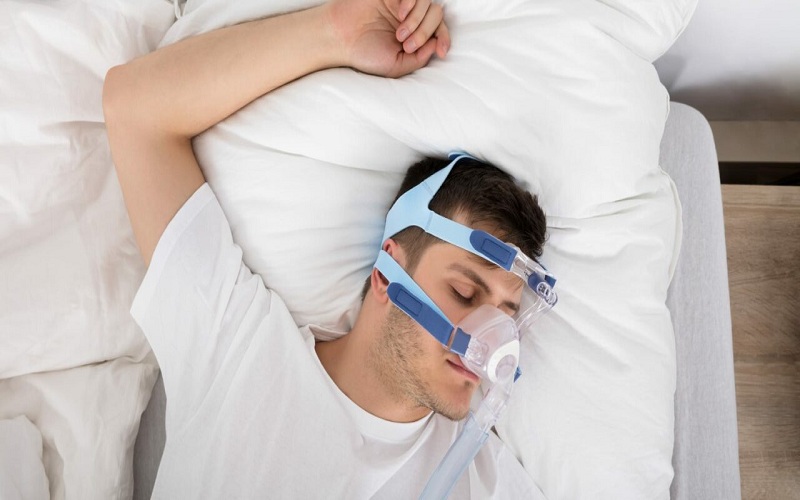Asthma and sleep apnea are two common respiratory conditions that affect millions of people worldwide. While they may seem unrelated, emerging research suggests a potential link between asthma and sleep apnea.
So what’s the connection between asthma and sleep apnea? Let’s explore the underlying mechanisms, and discuss the implications for treatment and management offered by asthma specialist in Manchester.
The Prevalence of Asthma
Asthma is one of the most common chronic diseases worldwide, with millions of people diagnosed each year. In the United Kingdom alone, it is estimated that over 5.4 million people receive treatment for asthma, making it a significant public health concern. The prevalence of asthma is particularly high among children, with childhood asthma being a leading cause of pediatric hospital admissions and emergency room visits.
What is Sleep Apnea?
Sleep apnea is a sleep disorder characterized by pauses in breathing or shallow breathing during sleep. The two main types of sleep apnea are obstructive sleep apnea (OSA), which occurs when the muscles in the throat relax and block the airway, and central sleep apnea (CSA), which occurs when the brain fails to send signals to the muscles that control breathing. Sleep apnea can result in fragmented sleep, daytime fatigue, and an increased risk of various health complications.
The Potential Link between Asthma and Sleep Apnea
While asthma and sleep apnea are distinct conditions, there is growing evidence to suggest a potential association between the two. Studies have found that individuals with asthma may have an increased risk of developing sleep apnea, and vice versa. The exact mechanisms underlying this relationship are not fully understood but may involve shared risk factors, such as obesity, inflammation, and airway dysfunction.
Shared Risk Factors
Obesity is a well-established risk factor for both asthma and sleep apnea. Excess weight can contribute to inflammation, airway narrowing, and respiratory muscle dysfunction, increasing the likelihood of developing both conditions. In addition, chronic inflammation of the airways in asthma may predispose individuals to upper airway collapse during sleep, leading to the development or exacerbation of sleep apnea. Consult with the best children’s lung asthma and sleep specialists in your locality to manage these risk factors.
Impact on Quality of Life
The coexistence of asthma and sleep apnea can have a significant impact on quality of life and overall health outcomes. Sleep disturbances caused by sleep apnea can exacerbate asthma symptoms and lead to poor asthma control. Conversely, poorly controlled asthma may worsen sleep apnea symptoms and disrupt sleep architecture, resulting in daytime fatigue and impaired cognitive function.
Diagnosis and Management
Recognizing the potential association between asthma and sleep apnea is essential for accurate diagnosis and optimal management. Individuals with asthma who experience symptoms of sleep apnea, such as loud snoring, witnessed apneas, or excessive daytime sleepiness, should undergo further evaluation by a healthcare professional. Diagnosis typically involves overnight sleep studies, such as polysomnography, to assess breathing patterns and sleep architecture.
Collaborative Care Approach
Managing asthma and sleep apnea requires a multidisciplinary approach involving collaboration between asthma specialist doctor in Manchester, sleep medicine physicians, and other healthcare professionals. Treatment may include medications to control asthma symptoms, such as inhaled corticosteroids and bronchodilators, as well as continuous positive airway pressure (CPAP) therapy or oral appliances for sleep apnea. Lifestyle modifications, such as weight loss and avoidance of allergens and irritants, can also help improve outcomes.
Future Directions
As research continues to advance, further exploration of the relationship between asthma and sleep apnea is warranted. Future studies should focus on elucidating the underlying mechanisms linking these conditions and identifying novel therapeutic targets for intervention. Additionally, efforts to improve screening and diagnostic strategies for sleep apnea in individuals with asthma are needed to enhance early detection and treatment.
Addressing Health Disparities
It is important to recognize that certain populations may be disproportionately affected by asthma and sleep apnea, including minority groups and individuals from lower socioeconomic backgrounds. Addressing health disparities and ensuring equitable access to healthcare services, including asthma and sleep apnea diagnosis and treatment, is essential for promoting health equity and reducing disparities in disease burden. So, search for “asthma doctor near me” or “asthma specialist near me” the minute you see signs of asthma along with sleep apnea in your children.
Conclusion
In conclusion, while asthma and sleep apnea are distinct respiratory conditions, there is growing evidence to suggest a potential association between the two. Shared risk factors, such as obesity and airway inflammation, may contribute to the development or exacerbation of both conditions. Recognizing the link between asthma and sleep apnea is essential for accurate diagnosis and optimal management, highlighting the importance of collaborative care and patient education in improving outcomes for individuals with these coexisting conditions.

